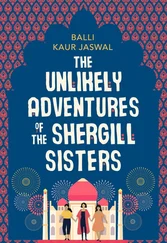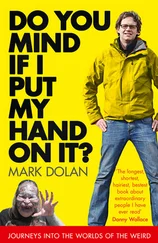Bean leaned down and shut off the water. She was going to have to solve this, somehow. Find a job. One that wouldn’t require a reference, of course.
If she could do that, could pay back the firm and get rid of everything she’d bought with that money, maybe she could make a fresh start. She couldn’t bear the thought of going back to New York yet, but another city – San Francisco? Better weather there anyway. There she could forget. There it would all be different.
At seven o’clock, the sun was finally considering its rest, bringing relief from the heavy heat of the day. In the kitchen, Bean sat on one of the counters, her back pressed up against the yellow wall, her arm hemmed in by the cabinets on one side. She hulled strawberries, as many going into her mouth as the bowl, it seemed, her fingers sticky with juice. The heavy ceramic bowl had come from our Nana, and it made Bean miss her.
Our mother stood in front of the sink, her fingers deftly flicking over a cucumber, peeling it with a knife, a skill none of us has ever mastered without risking serious bodily injury. She is a tremendous cook, but a notoriously unreliable one. If our mother is responsible, dinner is rarely served in our house before nine, and we remember, at times when we were young, our parents awakening us to eat, nodding heads drooping towards the table, thin legs in white printed pyjamas swinging sleepily like pendulums under the chairs. Our mother is capricious, likely to be struck by a whim to prepare a four-course meal on an ordinary Wednesday, and then struck by equally strong whims to wander off in the middle of that preparation and take a soothing bath, or to pick up the book she had been reading earlier and involve herself in that world for a while until the pasta water boils away and the smoke alarm (hopefully) brings her back to reality.
Summer, however, is different, because in the midst of all these farms, there are roadside stands, fertile with the bounty of the season in Ohio: crisp, sweet, Silver Queen corn; perfectly ripe, yielding tomatoes the size of baseballs; delicately flavoured cucumbers with satisfyingly watery flesh; strawberries, blackberries, raspberries, peaches – a dizzying array of colours, lush with juice. Often, in summer, this is all we eat, a table laden with fruits and vegetables, and Rose saw as she entered the kitchen that this was the case that night. Fortunate, as this also meant dinner would be ready before the crickets came out in earnest.
Bean popped a berry in her mouth and reached out under her legs for another, the bright greens nestled on top. She twisted the huller expertly and the head popped off. Seven in one blow. ‘What happened to the bookstore?’ she asked. She had noticed, on the drive in, the empty windows of the storefront, the sign that read, in angry letters, FINAL CLEARANCE!
Walking up beside our mother, Rose picked up one of the naked, pale cucumbers and began slicing it thinly, setting it in rounds on a platter beside her. We always ate the cucumbers and tomatoes the same way, pushed together in stacked ovals and drizzled with sharp balsamic vinegar and fresh-ground pepper. Rose’s mouth watered at the thought.
‘Oh, it’s a disaster,’ our mother said. ‘They’ve gotten too big for their britches, really. Remember how they used to handle the textbooks for Barney?’ We did. Barnwell, the name of both the town and the college where our father taught and therefore all three of us had matriculated, with varying degrees of success, had not had a bookstore of its own for years. The bookstore in town, nestled between a diner famous for its White Castle-esque burgers and the post office, took that honour, and during textbook sale and buyback season it was crammed with college students, looking hungry and desperate among the hand-knitted throws and souvenir Rice Krispie treats in the shape of the state (which, in Ohio, is not so far from the shape of a normal Rice Krispie treat).
‘Uh-huh,’ Bean said, flicking a strawberry into the bowl with a gentle ping.
‘Well, they said they didn’t want to sell the textbooks any more, accused the students of shoplifting, basically.’
‘They were shoplifting,’ Bean interrupted. ‘Their textbooks were a total rip-off.’ She remembered a friend of hers, a goateed, handsome boy with enthusiastically curly black hair, telling her the only reason he owned his winter coat was because the pockets were big enough to fit a chemistry book in.
‘Textbooks are expensive everywhere,’ Rose said.
‘I’m sure not all the students were shoplifting,’ our mother continued. ‘In any case, I don’t know what they were thinking. All those parents coming into town, wanting souvenirs, and now they are going to the booster store on campus instead for their sweatshirts and what-have-you.’
‘So they closed?’
‘Not at first. First they opened one of those coffee bars, which was a good idea, but Maura hadn’t the slightest idea how to run one. Barnwell Beanery is still open, you know, and the competition was too much.’
‘Oh, you know who runs the Beanery now?’ Rose asked. ‘Dan Miller. Didn’t he graduate with you?’
‘Yeah,’ Bean said, and she blinked a few times in surprise before she shifted and hopped off the counter, carrying the small bowl of discarded strawberry greens over to the trash can. She pressed her foot on the pedal and the lid popped obediently open. ‘Man, he’s still living here? That’s crazy.’
‘Bean? Compost?’ our mother said, raising her eyebrows and gesturing with the knife toward the container to the left of the trash can. Too late. Bean shook the last of the strawberry tops into the trash can. She shrugged, as though it had been out of her hands, and walked the bowl over to the sink.
‘It’s not so bad living here,’ Rose said, stung slightly.
‘Oh, stop. I’m not talking about you. We grew up here, it’s different. It’s not like you went to college here and then just decided to stay because it was so bucolic.’
‘It is bucolic,’ our mother said.
‘Not everyone wants to live in a city like New York,’ Rose said.
‘And that’s a good thing. It’s crowded enough there already,’ Bean said, and dropped the bowl in the sink, where it clattered enthusiastically.
‘What is the city but the people?’ Rose quoted.
‘So you’re going to go back?’ our mother asked.
Bean shrugged. ‘I’m not staying here, that’s for sure.’ The knife slipped in Rose’s hand, making the tiniest nick in the fleshy pad of her thumb. She lifted it to her mouth, sucking sour salt, sweet tomato.
‘You really quit your job?’ Rose asked, pulling her thumb from her mouth and examining the cut.
Bean looked at her. ‘Yes. Why is that so hard to believe?’
‘I don’t know. I guess I just thought you might have mentioned it to us or something. That you were planning to.’
‘What, in our chatty once-a-week phone calls?’ Bean sneered. ‘I didn’t realize I had to keep you apprised of my five-year plan.’ She could feel the meanness welling up inside her, but was helpless to stop it. It was anger that should have been directed at herself, but for crying out loud, couldn’t Rose ever leave anything alone?
‘You don’t have to bite my head off,’ Rose said. ‘I was just asking.’
‘You never just ask, Rose. You just want to criticize me.’
‘I’m not criticizing. Forgive me for showing a little interest.’
‘Girls,’ our mother said. We ignored her.
‘I quit my job. I didn’t want to work there any more. I was sick of New York. What more do you want? Take thy bond, take thou thy pound of flesh. ’
‘Don’t get dramatic. If I were going to quit a job I wouldn’t just up and do it without planning. That’s all I’m saying.’
Читать дальше












